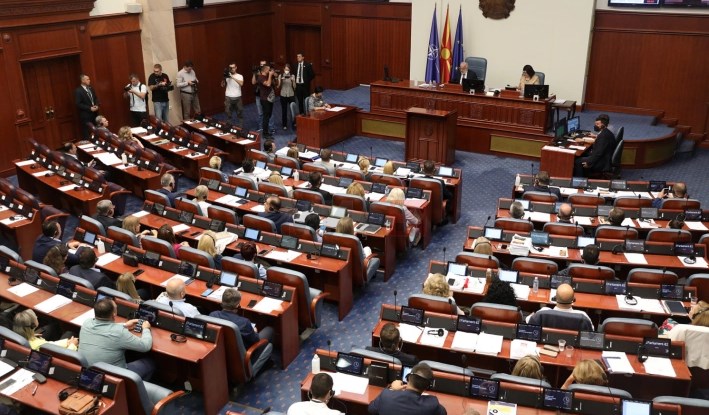The Parliament of the Republic of Macedonia is ready to start the procedure for constitutional amendments at any time, Parliament Speaker Talat Xhaferi told a press briefing on Tuesday. It takes 30 days from the moment the motion is submitted to Parliament by the proposer to the moment when the need to change the Constitution is established. For the time being, he added, there is no information on when the constitutional amendments could enter parliamentary procedure.
“As the competent proposers and competent institutions act, the Parliament is certainly ready at any moment to act in line with the procedures and deadlines under the Rules of Procedure,” Xhaferi said after the press briefing.
The Speaker is resolute that the MPs are in permanent session, noting that even if voting should take place in August, there will be no obstacle.
“Neither August nor July nor September is an obstacle for the Parliament,” said Xhaferi.
It takes 30 days from the day the Parliament receives the motion to the day of voting, because the Constitutional Commission, which is chaired by Xhaferi, has to hold a discussion for up to ten days, and it has to finish its work eight days before the day set for voting.
“At the session which has the need for constitutional amendments on the agenda, the debate lasts up to ten days,” Xhaferi noted.
The Parliament has already scheduled a session on July 18, but the Speaker pointed out that another session will have to be scheduled for the constitutional amendments.
As regards allegations that Deputy PM Bojan Marichikj has contacted MPs from the opposition by phone, Xhaferi said no one can stop anyone from contacting someone by phone, however, he pointed out that influence is inadmissible when it comes to MPs.
Regarding amendments to the law on civil registry and the draft law on gender equality, the Speaker said in their current form they will not receive his support as DUI MP. “I always point out to the MPs that they should look at Article 135 of the Rules of Procedure and make an assessment of what their proposal could cause in the public, before submitting any law.”
“This is not just a law,” he said, adding that if it is for Europe, it is the last thing that should be done for Europe.
With the legal solution for amendments to the law on civil registry, several DOM and SDSM MPs propose that all citizens over the age of 18, who are capable of work, and who are not married, have the right to legal gender recognition. This would be done by submitting an application completed at a notary public.




Comments are closed for this post.